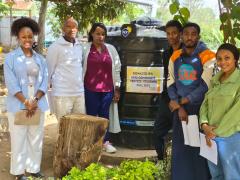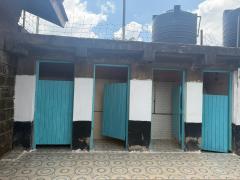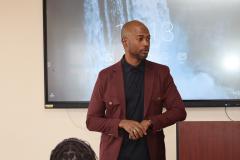VCs Weekly Higher Education Digest: January 21, 2019
Emerging Economies University Rankings 2019: results announced By Ellie Bothwell TIMES HIGHER EDUCATION
Egypt and Malaysia are among the fastest improving higher education systems in developing countries over the past year, according to Times Higher Education’s latest ranking. Both countries increased their representation in the THE Emerging Economies University Rankings 2019 despite rising competition from mainland China, with Egypt claiming 19 spots, up from nine last year, and Malaysia taking 11, also up from nine.
It Takes a Campus By Nancy Mann Jackson BUSINESS OFFICER
Strategic planning has long been an important fixture on college and university campuses. While the process has often taken place in silos, focused on academics, finance, or facilities, growing numbers of institutions are creating more integrated approaches to their strategic planning activities. As financial resources remain tight on most campuses, it has become even more crucial for business officers to get involved on the ground floor of planning activities to ensure success and viability.
https://www.businessofficermagazine.org/features/it-takes-a-campus/
What’s in Your Data? By Marlena A. Creusere and David R. Troutman BUSINESS OFFICER
Predictive analytics forecasts enrollment and optimizes financial aid at the University of Texas System. As the cost of higher education continues to grow, colleges and universities face increasing pressure to demonstrate student success and the value of a degree to their stakeholders….Predictive analytics consists of algorithms created by using historical data and linking that data to a series of outcomes.
https://www.businessofficermagazine.org/features/whats-in-your-data/
Professors Worry About the Cost of Textbooks, but Free Alternatives Pose Their Own Problems By Beth McMurtrie THE CHRONICLE OF HIGHER EDUCATION
When it comes to textbooks, faculty members have a lot of feelings. Many of them negative. But their thoughts on digital coursework and openly licensed materials aren't any less conflicted. These opinions, found in… a survey of more than 4,000 faculty members and department chairs released Wednesday, paint a complex picture of a fast-changing landscape.
https://www.chronicle.com/article/Professors-Worry-About-the/245435?cid=wcontentgrid
Colleges Are Getting Smarter About Student Evaluations. Here’s How. By By Kristen Doerer THE CHRONICLE OF HIGHER EDUCATION
[A] growing number of institutions that are looking to de-emphasize the use of student evaluations in personnel decisions. Instead, faculty members are increasingly evaluating one another’s teaching. They are also writing reflections on their own teaching. Meanwhile, even where student evaluations still play a significant role, they are being revised to minimize bias and prompt more-thoughtful feedback.
https://www.chronicle.com/article/Colleges-Are-Getting-Smarter/245457
How ‘Micro-Internships’ Could Make All Types of Students More Employable By Goldie Blumenstyk THE CHRONICLE OF HIGHER EDUCATION
Internships can be a great way for students to experience new fields of interest and the challenges of professional duties. But what about the students whose life circumstances don't allow them the luxury of relocating for a cool opportunity or taking on the equivalent of a second job, not to mention the students who lack the connections to land one?
https://www.chronicle.com/article/How-Micro-Internships-/245470
Editorial Mutiny at Elsevier Journal By Lindsay McKenzie INSIDE HIGHER EDUCATION
The entire editorial board of the Elsevier-owned Journal of Informetrics resigned Thursday in protest over high open-access fees, restricted access to citation data and commercial control of scholarly work.
Today, the same team is launching a new fully open-access journal called Quantitative Science Studies. https://www.insidehighered.com/news/2019/01/14/elsevier-journal-editors-resign-start-rival-open-access-journal
New journal to boost dissemination of African research By Gilbert Nakweya UNIVERSITY WORLD NEWS
A new African journal is to boost access to research output, particularly for African university academics, through a new peer-reviewed and open access publication that aims to increase intra-African research collaborations across scientific disciplines…. It was launched last year during the Next Einstein Forum (NEF) Global Gathering in Kigali, Rwanda.
https://www.universityworldnews.com/post.php?story=20190115134521573
OER Cost Assessment Strategies By Nichole Karpel and Bruce Schneider EDUCAUSE REVIEW
Open Educational Resources (OER) can provide access to high-quality resources while offsetting the costs of traditional textbooks. An array of costs are associated with the "free" approach, however, and institutions that are successful with OER understand that moving to open resources requires extensive planning, selection, management, and maintenance.
https://er.educause.edu/articles/2018/12/oer-cost-assessment-strategies
In age of AI, universities will need to rethink their purpose By Michael A Peters UNIVERSITY WORLD NEWS
Governments and world policy agencies now have technological unemployment and the future of work on their policy agendas. The rapid emergence of artificial intelligence (AI) and deep learning in the past decade has taken us by surprise, both in their development and the scope of their applications…. There are multiple challenges facing education in a future digital society. The digital university will see the rise of artificial intelligence, deep learning (machine learning), robotization…
https://www.universityworldnews.com/post.php?story=20190116094437946
Research ethics now a strategic priority for doctoral schools By Brendan O’Malley UNIVERSITY WORLD NEWS
Research ethics and integrity has become one of the top strategic priorities in doctoral education in Europe, according to a landscape report published by the European University Association’s Council for Doctoral Education (EUA-CDE), commissioned to examine progress in the reform or professionalization of doctoral education and the strategic priorities ahead for the sector.
https://www.universityworldnews.com/post.php?story=20190118062920255
Digital age challenges of recognizing qualifications By Jenneke Lokhoff and Katrien Bardoel UNIVERSITY WORLD NEWS
Digitization affects the recognition of qualifications in two ways. First, it changes the ‘subject’ of recognition: qualifications. New forms of learning are emerging and changing the education landscape, making it more flexible. One example is massive open online courses (MOOCs). These allow people to study without enrolling on an official study program.
https://www.universityworldnews.com/post.php?story=20190114090434823
Third of PhD students in Europe ‘fail to complete in six years’ By Ellie Bothwell TIMES HIGHER EDUCATION
A survey of 311 institutions by the European University Association (EUA) reveals that, while the PhD completion rate across the continent is improving, 34 per cent of candidates still fail to finish their doctoral dissertation within six years – with many of these students expected to have dropped out altogether…. However, the report notes that there are significant differences in completion rates in different countries.
https://www.timeshighereducation.com/news/third-phd-students-europe-fail-complete-six-years
Can Economics Fix Its Gender-Imbalance Problem? It’ll Take More Than Research, Women Say By Lily Jackson THE CHRONICLE OF HIGHER EDUCATION
Erin K. Fletcher, an economist with the global, nonprofit health and education organization Results for Development, feels so strongly about her field's problem with sexism that she left academe. Fletcher was one of many women who spoke out last week at the American Economic Association's annual meeting, in Atlanta.
https://www.chronicle.com/article/Can-Economics-Fix-Its/245460






